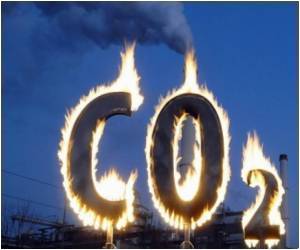Global carbon dioxide (CO2) emissions could be reaching record levels this year. There is certainly no sign of abating.

The study, which also involved the University of East Anglia (UK) and other global institutions, is part of the annual carbon budget update by the Global Carbon Project.
The global financial crisis severely affected western economies, leading to large reductions in CO2 emissions. For example, UK emissions were 8.6% lower in 2009 than in 2008. Similar figures apply to USA, Japan, France, Germany, and most other industrialised nations.
However, emerging economies had a strong economic performance despite the financial crisis, and recorded substantial increases in CO2 emissions (e.g. China +8 per cent, India +6.2 per cent).
Professor Pierre Friedlingstein, lead author of the research, said: “The 2009 drop in CO2 emissions is less than half that anticipated a year ago. This is because the drop in world Gross Domestic Product (GDP) was less than anticipated and the carbon intensity of world GDP, which is the amount of CO2 released per unit of GDP, improved by only 0.7 per cent in 2009 — well below its long-term average of 1.7% per year.”
The poor improvements in carbon intensity were caused by an increased share of fossil-fuel CO2 emissions produced by emerging economies with a relatively high carbon intensity, and an increasing reliance on coal.
Advertisement
The study also found that global CO2 emissions from deforestation have decreased by over 25% since 2000 compared to the 1990s, mainly because of reduced CO2 emissions from tropical deforestation.
Advertisement
The Global Carbon Project was formed to assist the international science community to establish a common, mutually agreed knowledge base supporting policy debate and action to slow the rate of increase of greenhouse gases in the atmosphere.
Source-Medindia








